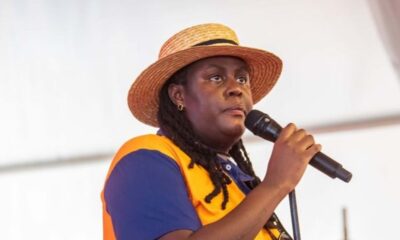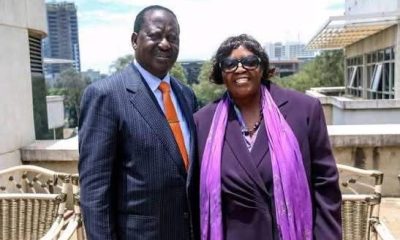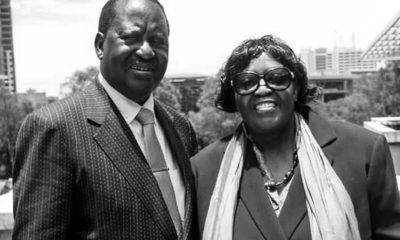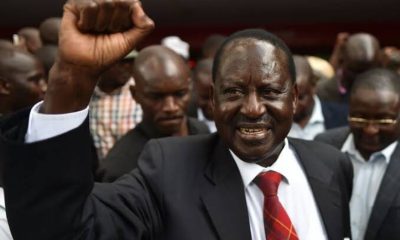Lifestyle
Raila Calls On Luos To Abandon ‘Goyo Dala’ Culture For Modern Homes And End Lavish Funerals
While some view Odinga’s proposals as necessary adaptation to contemporary realities, others worry about the erosion of cultural identity and community bonds.
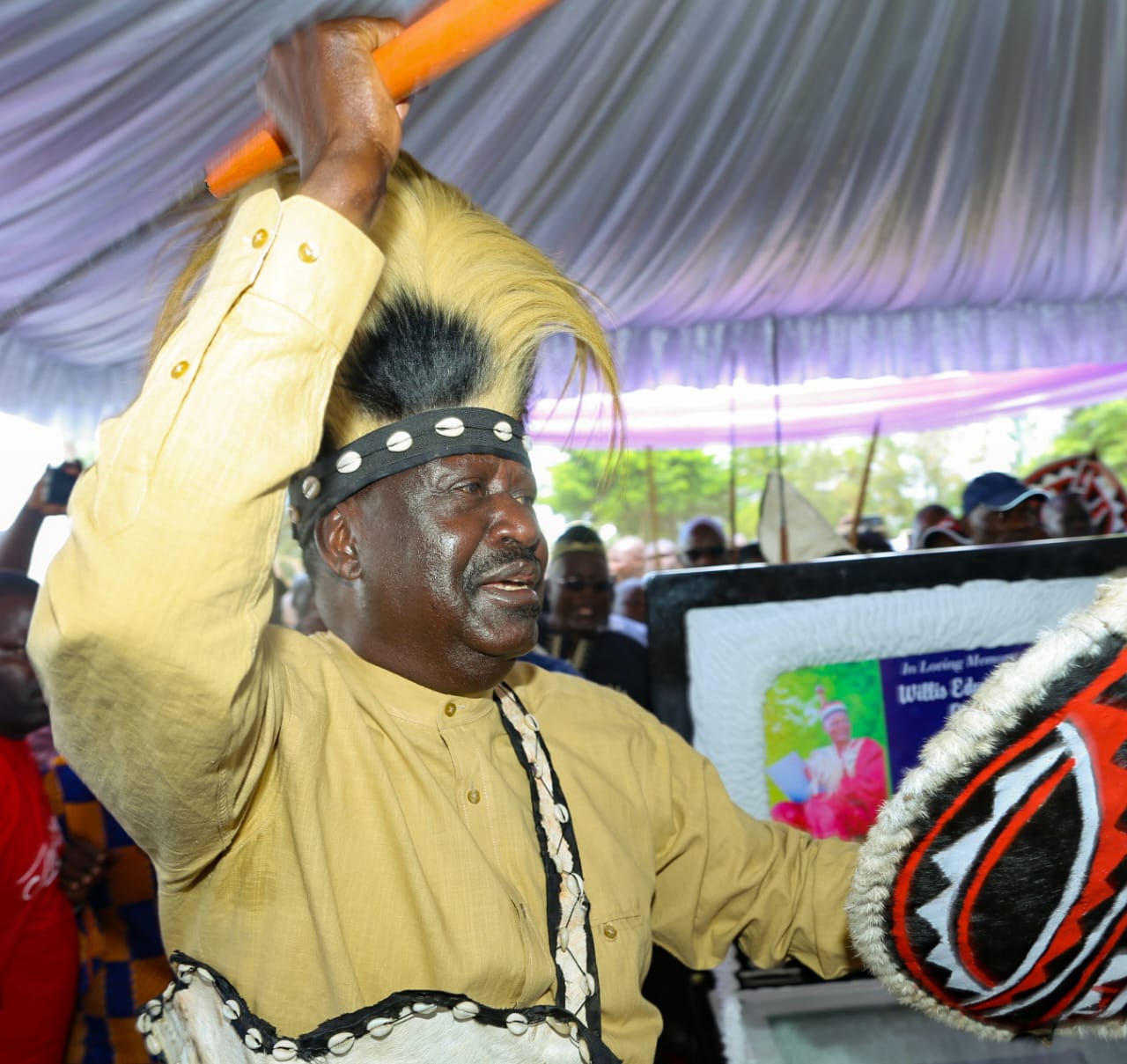
ODM leader advocates for clustered housing model and funeral reforms to drive economic growth in Luo community
Former Prime Minister Raila Odinga has launched a bold campaign calling on the Luo community to abandon the centuries-old tradition of “goyo dala” – establishing individual homesteads in favor of modern clustered housing developments that would facilitate better infrastructure delivery and economic development.
Speaking at a recent meeting with leaders from Nyakach, including Governor Anyang’ Nyong’o and members of the Luo Council of Elders, Odinga argued that the traditional practice has resulted in scattered rural settlements that complicate efforts to provide essential services such as electricity, water, roads, and healthcare.
Breaking with tradition
The “goyo dala” tradition represents a significant cultural milestone in Luo society, marking a young man’s transition to adulthood and independence when he establishes his own homestead on land allocated by his father.
Historically, sons would first build temporary structures called “simba” within their father’s compound before eventually moving to establish their own separate homestead.
“What we must do as a community is reflect critically on goyo dala and embrace more dignified, modern housing,” Odinga declared. “Our elders must initiate this dialogue. Let us learn from countries like South Korea, Malaysia and Singapore.”
The ODM leader proposed a community-based model where families live together in clustered homesteads, which he argues would strengthen family bonds while enabling more efficient delivery of public services.
Economic argument
Odinga’s call for housing reform is rooted in economic pragmatism.
He expressed concern over what he described as “rural slums” visible from the air, attributed to poor planning and unchecked land fragmentation.
“In earlier times, the population was small and land was abundant. That is no longer the case,” he explained.
“Rather than subdividing land endlessly, we should designate central zones for housing while preserving the rest for agriculture and amenities.”
To illustrate the problem, Odinga used a hypothetical scenario: “A father with 20 acres of land bequeaths it to four sons each receiving five acres. Over generations, these plots shrink and eventually become too small to accommodate even basic infrastructure.”
His vision includes integrated housing models where families would live in planned communities with access to shared amenities such as playgrounds, shops, and clean water within shared compounds.
The proposals have garnered backing from development professionals.
Victor Kanyaura, Chief Officer for Physical Planning, Housing and Urban Development in Kisumu County Government, endorsed the concept, citing successful models in Kericho’s tea estates where workers live in consolidated quarters.
“This enhances unity and shared meals, which are integral to African culture,” Kanyaura noted, adding that clustered housing reduces infrastructure costs while fostering communal living.
He criticized the growing trend of subdividing land into tiny 50×100-foot plots, arguing this undermines meaningful development.
Ker Odungi Randa, Chairman of the Luo Council of Elders, has also expressed support for the shift. “Many are already embracing this including prominent members of our community. With time, even rural villagers will recognize its benefits,” he said.
The funeral economy challenge
Beyond housing reform, Odinga has also called for urgent conversation about the commercialization of funerals in the Luo community, which he argues has become a significant economic drain.
The scale of the problem is staggering.
Cabinet Secretary John Mbadi revealed that his Suba South constituency alone spends approximately Sh200,000 per funeral, with 43 people buried each week.
This translates to Sh8.6 million weekly, Sh34.4 million monthly, and Sh412 million annually – more than the constituency receives in National Government Constituency Development Fund allocations.
“We must have a conversation about our funerals and the economic impact it has on the community’s economy,” Odinga stated. “Funerals cannot be industries. The Luo community had a structured way for burials and it did not take a long time.”
Cultural resistance and economic reality
The push for reform faces significant cultural headwinds. Luo funeral traditions are deeply rooted in beliefs about the afterlife and respect for the deceased.
The community believes that lavish funeral ceremonies appease the spirits of the departed and demonstrate proper respect for kinship ties.
However, critics argue these elaborate ceremonies have evolved into “eating festivals” that burden families with debt and divert resources from productive investments.
Kisumu Woman Representative Ruth Odinga noted that most event managers profiting from these ceremonies are not even from the Luo community.
“The majority of the event managers are not from the Luo community, and it is sad that after the burial, the bereaved families are confined to poverty,” she observed.
Odinga has positioned these reforms not merely as Luo community issues but as national imperatives.
He has emerged as a strong supporter of President William Ruto’s Affordable Housing initiative, arguing that moving away from generational land fragmentation aligns with the government’s efforts to create integrated housing solutions.
“We must move away from generational land fragmentation. It is no longer viable and we should support the government’s efforts to create affordable, integrated housing where diverse people live together,” he said.
However, he emphasized that such shifts must be accompanied by government investments in education, employment, and healthcare. “People must have access to jobs and markets to generate income. Without this, they cannot afford mortgage payments,” he cautioned.
The debate reflects broader tensions between cultural preservation and economic modernization facing many African communities.
While some view Odinga’s proposals as necessary adaptation to contemporary realities, others worry about the erosion of cultural identity and community bonds.
As Kenya grapples with urbanization pressures and the need for efficient service delivery, the Luo community finds itself at the center of a conversation about how traditional practices can evolve to meet modern challenges while preserving essential cultural values.
The success of Odinga’s reform agenda will likely depend on the community’s ability to find a middle ground that honors ancestral wisdom while embracing practical solutions for sustainable development.
As the former Prime Minister noted, change must come from within the community, guided by elders and embraced by the younger generation who will ultimately inherit both the benefits and challenges of these decisions.
Kenya Insights allows guest blogging, if you want to be published on Kenya’s most authoritative and accurate blog, have an expose, news TIPS, story angles, human interest stories, drop us an email on [email protected] or via Telegram
-

 Grapevine6 days ago
Grapevine6 days agoAlleged Male Lover Claims His Life Is in Danger, Leaks Screenshots and Private Videos Linking SportPesa CEO Ronald Karauri
-

 Lifestyle1 week ago
Lifestyle1 week agoThe General’s Fall: From Barracks To Bankruptcy As Illness Ravages Karangi’s Memory And Empire
-

 Grapevine2 days ago
Grapevine2 days agoRussian Man’s Secret Sex Recordings Ignite Fury as Questions Mount Over Consent and Easy Pick-Ups in Nairobi
-

 Investigations2 weeks ago
Investigations2 weeks agoEpstein Files: Sultan bin Sulayem Bragged on His Closeness to President Uhuru Then His Firm DP World Controversially Won Port Construction in Kenya, Tanzania
-

 News2 weeks ago
News2 weeks agoAUDIT EXPOSES INEQUALITY IN STAREHE SCHOOLS: PARENTS BLED DRY AS FEES HIT Sh300,000 AGAINST Sh67,244 CAP
-

 Business2 weeks ago
Business2 weeks agoKRA Can Now Tax Unexplained Bank Deposits
-

 Investigations1 week ago
Investigations1 week agoEpstein’s Girlfriend Ghislaine Maxwell Frequently Visited Kenya As Files Reveal Local Secret Links With The Underage Sex Trafficking Ring
-

 News1 week ago
News1 week agoState Agency Exposes Five Top Names Linked To Poor Building Approvals In Nairobi, Recommends Dismissal After City Hall Probe




